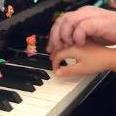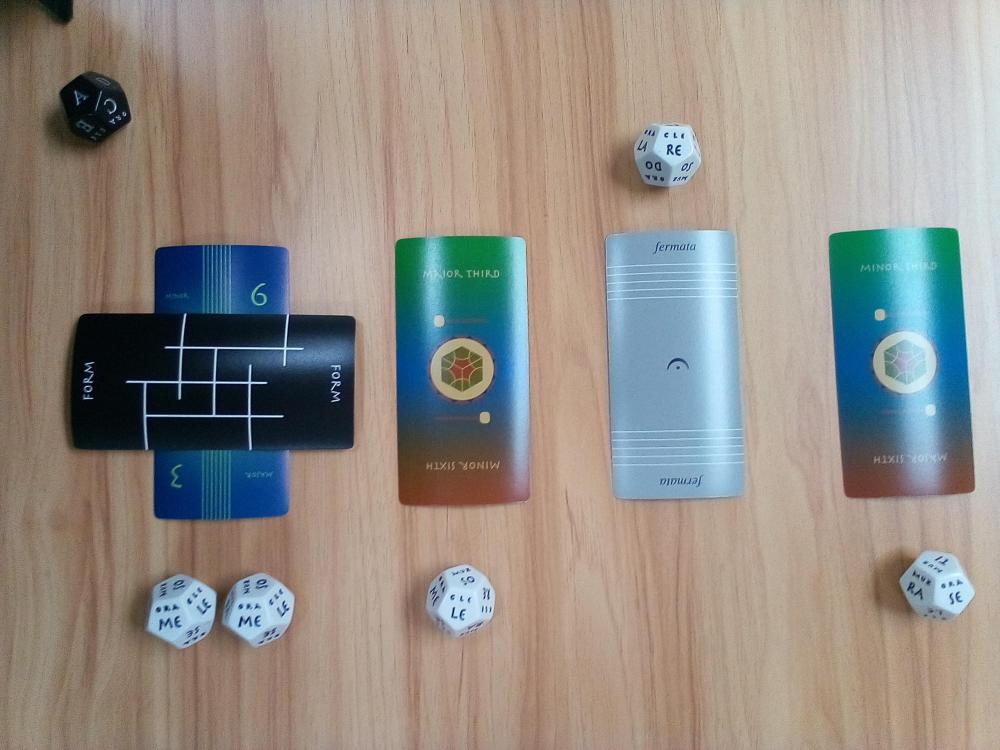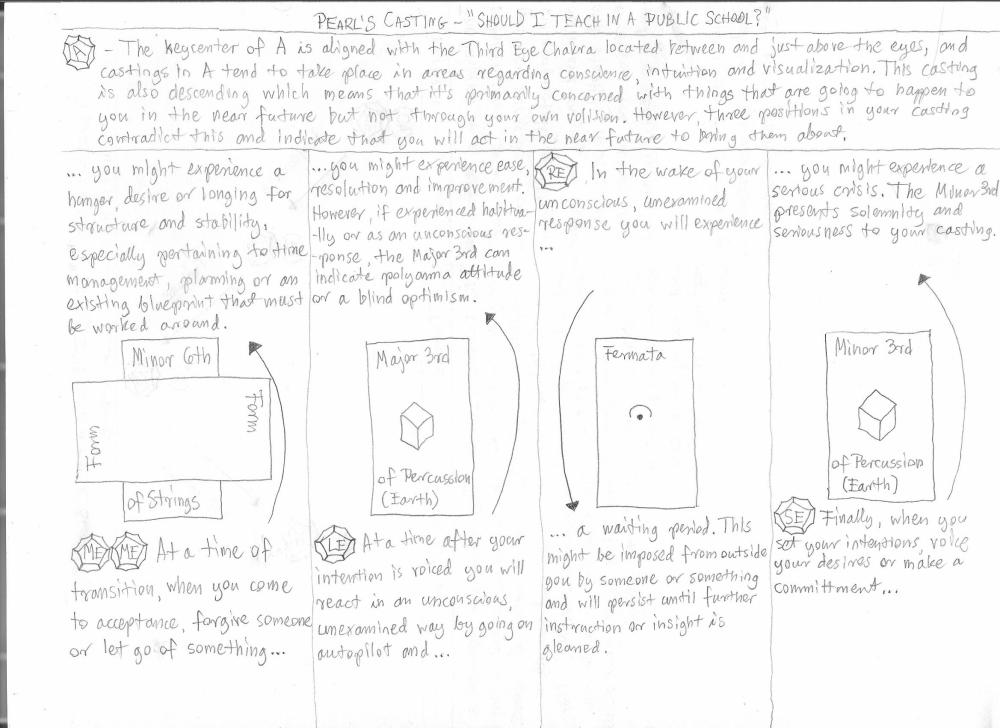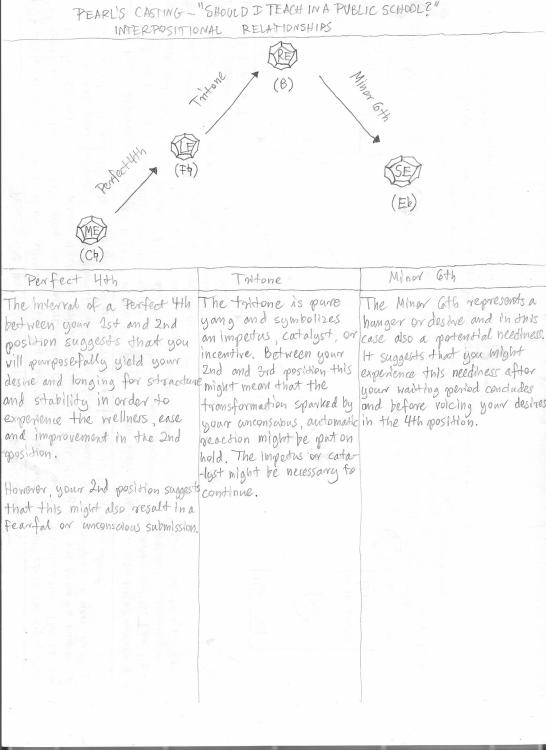All Activity
- Past hour
-
murphybridget started following Pearl's Casting - "Should I teach in a public school?"
- Today
-
Henry Ng Tsz Kiu started following Etude Appassionata
-
Jackie changed their profile photo
-
Jackie started following Etude Appassionata
-
Hello @Jackie and welcome to the forum! The accompaniment figurations in this sometimes remind me of Chopin's Revolutionary Etude (the retransitition at 1:58 especially). I personally enjoyed the waltz like middle section the most - your harmony is very romantic and builds tension and emotion beautifully. The long leading melodic line is also very passionate. It only lets up into a little sweetness in the middle section which I really love. Thanks for sharing this wonderful piece! Great performance as well!
- Yesterday
-
PeterthePapercomPoser started following Etude Appassionata , Pearl's Casting - "Should I teach in a public school?" and Bagatelle No. 1
-
I have another Muzoracle casting for y'all. (Muzoracle is a storytelling/divination tool similar to the Tarot card deck, but with cards with musical concepts and 12-sided Musician's dice and Solfege dice.) This time, Pearl asked the Muzoracle if she should teach in a public school: My interpretation of the cards and dice are displayed below. The instrumentation of the piece was guided by the suits of the cards drawn. Since the card on the left is a Minor 6th of Strings, I chose Violin as the main solo instrument. Both the card on the middle left and far right are in the suit of Percussion so I chose the Vibraphone to accompany. If you'd like to find out more about Muzoracle and how castings are interpreted go here: https://muzoracle.com/ This short representation of Pearl's Casting is about a minute long. The piece is in A, since the black 12-sided Musician's Die landed on that tonal center. I then made harmonic/melodic underdrawings that I used in the composition of the music. Since the solfege dice landed on Me, Le, Re and Se this corresponded to the tones C, F, B, and Eb. I then used the interval cards to elaborate on the harmony in the ascending or descending direction according to the casting: In order to give the piece some harmonic and melodic contrast, half way through I transposed these figurations by a Minor 6th down since the casting is descending overall and the first card drawn was a Minor 6th: If you've gotten this far, thanks for reading and I hope you enjoy listening to this short chamber work I wrote to represent Pearl's casting. Comments, suggestions, or critiques are of course, always welcome.
-
Hi @Henry Ng Tsz Kiu, Many thanks for having taken the time to give me your feedback, that's very much appreciated, and it will definitely help to improve! Does it give a feeling of "too many things packed in one"? Or on the contrary, is it too repetitive? Yes, I wanted to create an effect of voices answering one-another Maybe you're right, I will give it a think! I played a bit around, and went for A natural, followed by A#. Thanks for the tip Absolutely, I'm not super good at spotting those mistakes -> all corrected 😉 ! Take care, Julien tableau 5.mid
-
Cafebabe started following Bagatelle No. 1
-
.thumb.png.8b5b433a341551e913a34392660bc95b.png)
Jamie's Casting - "Will I find true love?"
PeterthePapercomPoser replied to PeterthePapercomPoser's topic in Chamber Music
LoL - that was mandated by the voices card! I had to include some kind of voice! You mean her true love? LoL 🤣 -
Overall I think it is a great job. Maybe it could be a little more careful in terms of dynamics. One thing that strikes me is that there are moments in the low register where the chords in block sound very closed. That seems to me a little out of style. Apart from that, in general, it is something to "avoid". Another thing that I don't like very much and that I observe many times, is the speed of the first movement and the third movement (in this one less). It seems excessive to me (that's my taste). There are many works where the speed is justified. I don't know, it's an appreciation.
-
Jackie joined the community
-
Hi, this is my first advanced piano solo composition . Would love some feedback. Thank you.
-

The wacky adventures of Inspector Looso - Main Theme
barko replied to Syrel's topic in Incidental Music and Soundtracks
I really liked it. No suggestion except keep exploring. Let's have another. -
Thanks, Henry! The Washington Heights Community Choir just sang this on Broadway 😲 and then again in Brooklyn, so I felt like, in case those performances generate any extra interest, it would be good to have some fresh demos for people to take a look at. Even if that means they need to hear me singing autotuned bass. Glad you enjoyed it!
- 2 replies
-
- calm
- a cappella
-
(and 9 more)
Tagged with:
-

Jamie's Casting - "Will I find true love?"
Henry Ng Tsz Kiu replied to PeterthePapercomPoser's topic in Chamber Music
Yo Peter, This one is so goddamn mesmerising just like love. It’s tricky, addictive, dreamy, a bit horrible, just like your music here. It’s so amazing that you come up with so great of the harmonic colour and timbre for a random theme. Like Vince I am in awe with the theme and left hand piano, but I am also in awe with the flute and dreamy echoing right hand of piano. The only thing I love less is the voice haha. I mean, even a gamelan would have been better than the voice!!😝 Thx for sharing! Btw hope Jamie finds his true love! Henry -
Hi @Some Guy That writes Music, I finally have time for this one! I had longed for listening this one but I had to compose my music so I reviewed nothing here. The beginning section sounds peaceful, but you introduce a lot of colours here and make it interesting. As we are both featured in Mike’s video, I really love the Ab modulation Mike quoted. I have to note that, you do prepare for that modulation introducing an Ab in b.90. And it’s fxxingly beautiful here. For me the section is more in F Aeolian. It’s so fresh here and the themes are so beautiful. Maybe in b.204 the sustained brass like the trombone is a bit too loud and overshadow the woodwinds and strings, until b.218. The 218 passage is so grand and I love it very much! The military theme is less in my liking, but again b.285 theme is so freakingly beautiful. B. 308 bassoon is nice! That modulation back to C major is so goddamn beautiful!!! One thing is that I think the F minor section is somewhat a bit too long and suppress the original C major too much for me, but that’s subjective. The ending struggling is really great and push that one final climax at the end! One of the great things here I think is that I never feel boring in any of the 18 minutes despite knowing that there are repetitions. Your orchestration is so good to create the aura and atmosphere! The themes are simple, but the effect is so great. I am in awe of this piece, congrats for this achievement! Thx for sharing! Henry
-
Faust (powerful metal track)
olivercomposer replied to olivercomposer's topic in Incidental Music and Soundtracks
Thanks for your comment. I appreciate your perspective. The song is more focused on Faust's inner struggles rather than his romantic relationships. I aimed to create an epic metal song that delves into his inner turmoil. -
Hi @pateceramics, We have countertenor, and thx to you we now have countersoprano! I love the modal feeling here. Those parallel fifths and octaves add the feeling of it. It’s so English here. I like this! Thx for sharing. Henry
- 2 replies
-
- 1
-

-
- calm
- a cappella
-
(and 9 more)
Tagged with:
-

Faust (powerful metal track)
Henry Ng Tsz Kiu replied to olivercomposer's topic in Incidental Music and Soundtracks
Hi @olivercomposer, Even though I didn’t read Goethe’s Faust, I like Faust and Mephistopheles. They are cute. They really represent Western culture and thoughts, even though they are extreme version of it. On the music using Bb minor and Neapolitan sixth is great for the evil theme. Btw where is Gretchen? And where is Helen? I find their love with Faust great! I remember watching an old silent film on Faust and Gretchen’s love and I loved it so much. Thx for sharing! Henry -
Hi @ajd6553, The music is quite yummy to listen to! It will be perfect if it’s background in a restaurant! I wanna eat! Henry
-
Henry Ng Tsz Kiu started following Help with writing? , Sleepless nights and Tableau No. 5
-
Hi @Cafebabe, I find the first movement quite Mozartean. It certainly reminds me his A minor Piano Sonata. I think in the development you can invite more modulations, instead of lurking around in A minor for a long time! It’s the key of the 2nd subject so it will be somewhat less interesting staying in that key for a long time. The end of the development is very much like the end of the development of Mozart’s A minor Sonata. Modulating to tonic major in recapitulation before going back to tonic minor in the 2nd subject is quite interesting. The second movement is very much like pieces in “the Children Pieces” which I use to teach my students! It’s light hearted. Using Subtonic major as 2nd movement key is quite interesting. The third movement is quite exciting. The modulation around b.75 is interesting, but the move to six flat key signature is not necessary. Is the movement in rondo form? I find the materials in there is somewhat less organized. For example I find the chorale section in b.127 quite unrelated with the movement! The vivace fugato is quite confusing as the transition to it and from it is quite abrupt. The ending however is quite exciting! I am quite nit picky here, but you probably compose much better than when I was 16 years old! Congrats for writing a multi movement work! Henry
-
Hi @mazeth, I think the piece is quite Baroque with many sequences and similar figuration. The hand crossing is interesting. I love your attempt for the modulations, for example in b38, but I think they can be smoother rather than just having a chord! For b.90, maybe having an A#-A natural bass will be smoother. I think the Db in the first section should all be C# since it’s in d minor! I think some of the expressions can be deleted since only one is enough for each staff! Thx for sharing. Henry
-

Favorite Musical Book Quotes?
Henry Ng Tsz Kiu replied to PeterthePapercomPoser's topic in Composers' Headquarters
It’s too long man… -
The World Turns
murphybridget replied to Alex Weidmann's topic in Incomplete Works; Writer's Block and Suggestions
You're welcome. Sounds like you're making great progress! Adding those finer details will really bring out the nuances in your piece. And you're right about the title, leaving it open to interpretation can add depth to the listener's experience. Keep up the good work! -
.thumb.png.8b5b433a341551e913a34392660bc95b.png)
Favorite Musical Book Quotes?
PeterthePapercomPoser replied to PeterthePapercomPoser's topic in Composers' Headquarters
I've been introduced to a very interesting and enlightening new philosophy book by my friend Lisa. On the surface "The New Existentialism" by Colin Wilson doesn't seem to be a book very much concerned with music but I assure you that it has much to say about creativity and music some of which I share below. (The book was published in 1966 - read all the way to the end for a short discussion of Beethoven and Wagner.) Edit: I think I have shared this long quote here mostly for my own benefit, since I will have to return the book eventually. But for those who get through it, I hope that, like me you consider musical composition your 'originative intellectual work' and that sharing your music and listening to it induces in you 'peak experiences'. Thanks for reading! -

Évocation Nocturne - Clarinet & Piano
Gwendolyn Przyjazna replied to Nazariy's topic in Chamber Music
Hi, Nazariy! This is a beautiful piece of work. I really enjoyed all the dynamic contrast in the B section. There are moments like 2:25 where I wish I could hear the clarinet just a bit more, but perhaps it was your choice to have it so closely intertwined with the piano. Thank you for sharing! I can hear the joy. - Last week
-
Hi all, I wanted to share my latest composition, hoping for some feedback! Enjoy the listening 🙂! Julien PS: Scores and midi files are available here: https://imslp.org/wiki/Tableau_No.5_(Piaser%2C_Julien) tableau 5.mid
-
Eva Browning joined the community
-
Hi all! This is my first post, and I'm looking for a little advice! For context: I've been playing piano for 11+ years and I'm taking AP Music Theory right now. My theory teacher is having us write a composition using traditional 18th-century techniques, with four voices (I've opted for a traditional string quartet). This is my first time ever writing a piece of music for a class (everything else I've done is just playing around on guitar and piano), so I'm super unsure of where to start. I would be incredibly grateful for any advice on how to begin! Best, EB 🙂








.thumb.jpg.a1bd070fa88caa1c83527ffe77c97a41.jpg)

